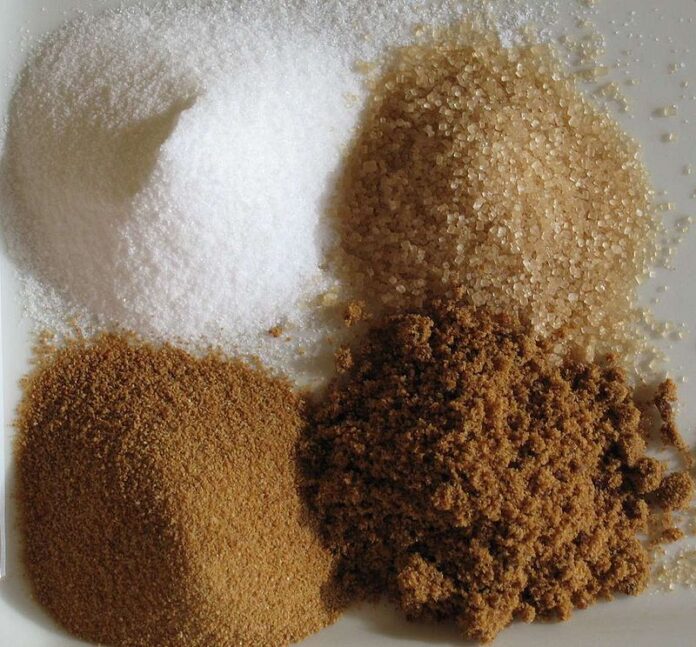Given a cuboid and three integers L, B, and H. If the length of the cuboid is increased by L%, breadth is increased by B% percent, and height is increased by H% percent. The task is to find the percentage increase in the volume of the cuboid.
Examples:
Input: L = 50, B = 20, H = 10
Output: 98%
Input: L = 10, B = 20, H = 30
Output: 71.6%
Approach: Suppose the original length, breadth and height of the cuboid be l, b and h respectively. Now, the increased length will be (l + ((L * l) / 100)) i.e. increasedLength = l * (1 + (L / 100)). Similarly, increased breadth and height will be increasedBreadth = b * (1 + (B / 100)) and increasedHeight = h * (1 + (H / 100)).
Now, calculate originalVol = l * b * h and increasedVol = increasedLength * increasedBreadth * increasedHeight.
And, the percentage increase can be found as ((increasedVol – originalVol) / originalVol) * 100
(((l * (1 + (L / 100)) * b * (1 + (B / 100)) h * (1 + (H / 100))) – (l * b * h)) / (l * b * h)) * 100
((l * b * h * (((1 + (L / 100)) * (1 + (B / 100)) * (H / 100)) – 1)) / (l * b * h)) * 100
(((1 + (L / 100)) * (1 + (B / 100)) * (1 + (H / 100))) – 1) * 100
Below is the implementation of the above approach:
C++
// C++ implementation of the approach#include <bits/stdc++.h>using namespace std;// Function to return the percentage increase// in the volume of the cuboiddouble increaseInVol(double l, double b, double h){ double percentInc = (1 + (l / 100)) * (1 + (b / 100)) * (1 + (h / 100)); percentInc -= 1; percentInc *= 100; return percentInc;}// Driver codeint main(){ double l = 50, b = 20, h = 10; cout << increaseInVol(l, b, h) << "%"; return 0;} |
Java
// Java implementation of the approachclass GFG{ // Function to return the percentage increase// in the volume of the cuboidstatic double increaseInVol(double l, double b, double h){ double percentInc = (1 + (l / 100)) * (1 + (b / 100)) * (1 + (h / 100)); percentInc -= 1; percentInc *= 100; return percentInc;}// Driver codepublic static void main(String[] args){ double l = 50, b = 20, h = 10; System.out.println(increaseInVol(l, b, h) + "%");}}// This code is contributed by Code_Mech |
Python3
# Python3 implementation of the approach# Function to return the percentage increase# in the volume of the cuboiddef increaseInVol(l, b, h): percentInc = ((1 + (l / 100)) * (1 + (b / 100)) * (1 + (h / 100))) percentInc -= 1 percentInc *= 100 return percentInc# Driver codel = 50b = 20h = 10print(increaseInVol(l, b, h), "%")# This code is contributed by Mohit Kumar |
C#
// C# implementation of the approachusing System;class GFG{ // Function to return the percentage increase// in the volume of the cuboidstatic double increaseInVol(double l, double b, double h){ double percentInc = (1 + (l / 100)) * (1 + (b / 100)) * (1 + (h / 100)); percentInc -= 1; percentInc *= 100; return percentInc;}// Driver codepublic static void Main(){ double l = 50, b = 20, h = 10; Console.WriteLine(increaseInVol(l, b, h) + "%");}}// This code is contributed by Code_Mech |
Javascript
<script>// Javascript implementation of the approach// Function to return the percentage increase// in the volume of the cuboidfunction increaseInVol(l, b, h){ let percentInc = (1 + (l / 100)) * (1 + (b / 100)) * (1 + (h / 100)); percentInc -= 1; percentInc *= 100; return percentInc;}// Driver code let l = 50, b = 20, h = 10; document.write(increaseInVol(l, b, h) + "%");</script> |
98%
Time Complexity: O(1)
Auxiliary Space: O(1)
Ready to dive in? Explore our Free Demo Content and join our DSA course, trusted by over 100,000 neveropen!

